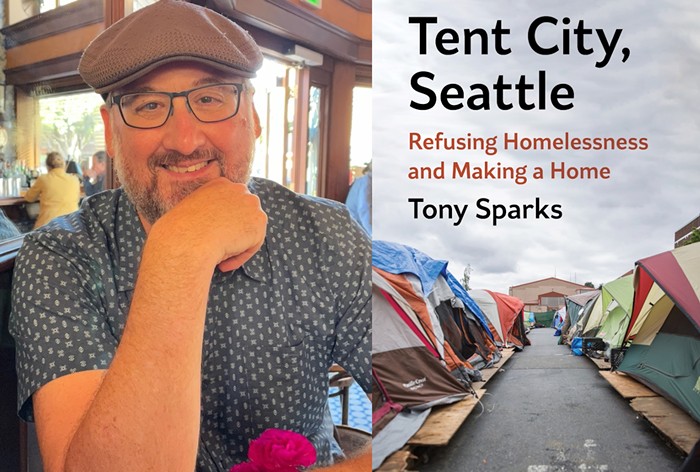
Two years ago, I made the argument that the family feast in the greatest short story about Christmas in the English language, James Joyce's "The Dead," is the key to not only the whole work, but the history of colonial rule in Ireland. The feast is, of course, haunted by "the Great Hunger that devastated Ireland's poor between 1845 and 1850." And nor was this a normal kind of famine. It was imposed on the Irish by the British. The idea of providing aid to the needy violated the stern ethic of laissez-faire (unfettered capitalism). And so we have in this Dublin feast—which is elaborately and gorgeously described by Joyce—and its ghost one of the many extreme conditions that capitalism generates. There's the very rich, and the very poor; there's over-production, and under-production; supermarkets and famine.
Neal Kosaly-Meyer, a musician who is memorizing the whole of James Joyce's most difficult work, Finnegans Wake, and is reciting the entire 6th chapter of the novel today,
These days, I'm so much into the economics of a work of art that I often forget about the art itself. But James Joyce was a writer who, as the late Nabokov scholar Alfred Appel Jr. explained in his book Jazz Modernism: From Ellington and Armstrong to Matisse and Joyce, always said yes. Appel believed that there are two types writers: those who say no and those who keep giving more and more of everything. James Joyce could never say no.Wanted you to know that I continue to think about your comments regarding the feast in "The Dead" and it's helped me to better understand both what Joyce does, and what I'm doing with Joyce: He is always presenting us with feasts I think—feasts of language, of sound, of atmosphere, of feeling, of thought, of personalities, and these are to be savored and delighted in. We don't ask that we be able to "understand" a feast—what is the "meaning" of roast goose or ham or stuffing or pudding or wine? We feast on these things; we take in their bouquets and textures and flavors, and exult and delight in all of that.



















